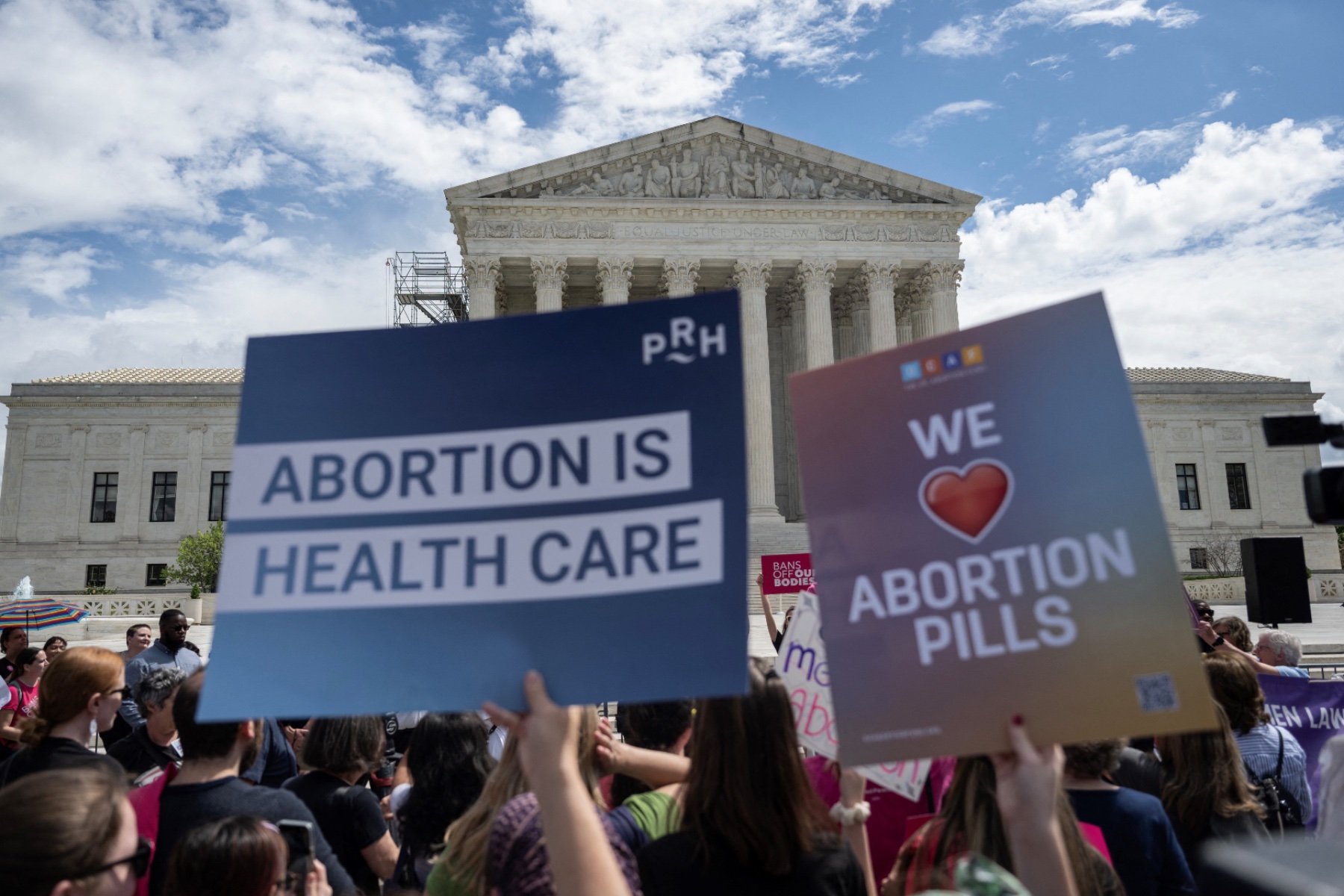New York Attorney General Letitia James announced Monday that she will defend her state’s abortion protections in a lawsuit brought by the state of Texas. James’ involvement sets up the first interstate fight over abortion laws since the fall of Roe v. Wade, opening the door for the Supreme Court to weigh in on a key legal mechanism that has helped people in states with bans access abortion.
Texas Attorney General Ken Paxton filed a civil suit against Dr. Margaret Carpenter in December for providing a telehealth abortion to a Texas-based patient. Carpenter lives and practices in New York, where abortion is legal; in Texas, where her patient received the health care, there is an almost total ban on abortion.
New York is one of several states where abortion providers are protected by shield laws — statutes that ban cooperation with other states’ attempts to enforce abortion bans. The law prohibits New York law enforcement officials from arresting or extraditing health professionals who provided abortions that are legal in New York; law enforcement also cannot cooperate with investigations or punishments of such procedures.
By setting up a clash between two states’ chief law enforcement offices, James’ intervention increases the likelihood that the New York-Texas dispute becomes a vehicle for the Supreme Court to weigh in on the constitutionality of shield laws and the telehealth abortions they enable.
This month, James, the first woman and first Black person to serve as her state’s attorney general, will argue in legal filings that the Empire State has the right to pass laws protecting its residents from another state’s abortion bans.
“Texas has no authority in New York, and no power to impose its cruel abortion ban here,” James said in a statement.
The implications are significant. Since Roe’s undoing, tens of thousands of people living under abortion bans have relied on telehealth to get care. Health providers living in states with legal abortion consult with them virtually and then have abortion pills mailed to them to take from home. Now, about 1 in 4 abortions are done through telehealth — and half of those are for people receiving shield-law-protected care. The practice is medically safe and effective and often easier and more affordable for patients than traveling to another state.
But the legality is fraught.
Supporters of the practice argue that, because the medical providers are practicing in their home states where abortion is legal they are not violating any laws. Abortion opponents say the opposite: that because the abortion ultimately occurs in a state where the procedure is banned, telehealth providers are breaking the law and must be punished accordingly.
Legal analysts have said the legality of shield laws will likely be decided by the Supreme Court. Several cases are pending that address abortions allegedly provided over telehealth to patients in states with bans, including a criminal case brought by Louisiana Attorney General Liz Murrill and two civil cases both filed by anti-abortion lawyer Jonathan Mitchell.
In February, a judge in a Texas state court ruled against Carpenter, saying she had to pay a penalty of $113,000. But New York state officials have refused to enforce the ruling, citing the state’s shield laws. Carpenter herself has not entered Texas. Then in July, Paxton sued the Ulster County, New York, clerk for declining to enter the Texas judgement against Carpenter. In that petition, he argued that New York’s shield law violates the U.S. Constitution’s Full Faith and Credit clause, which requires that states honor other states’ judicial proceedings.





